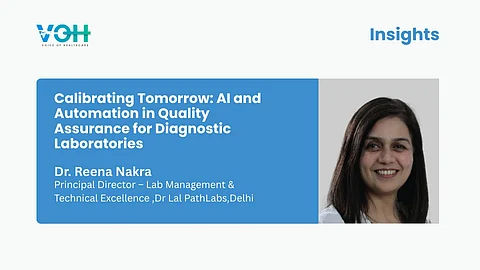

In the evolving landscape of clinical diagnostics, the pursuit of precision is no longer confined to manual expertise—it is increasingly shaped by intelligent systems. The integration of artificial intelligence (AI) and automation into laboratory operations is redefining quality assurance (QA), particularly in large-scale diagnostic networks where consistency, speed, and compliance are paramount.
AI-driven quality control systems are now capable of real-time anomaly detection, predictive maintenance, and pattern recognition across diverse assay platforms. These technologies are particularly impactful in high-throughput environments, where machine learning algorithms can flag deviations in biochemical parameters, optimize reagent usage, and even forecast equipment failures before they disrupt operations
Automation complements this intelligence by standardizing workflows across pre-analytical, analytical, and post-analytical phases. Robotic sample handling, automated calibration, and integrated Laboratory Information Systems (LIS) ensure reproducibility and traceability—cornerstones of any robust QA framework. In multi-location lab networks, automation facilitates harmonized protocols and centralized monitoring, enabling compliance with ISO 15189 and NABL standards.
However, the deployment of AI and automation must be guided by ethical and operational vigilance. Algorithmic transparency, data security, and clinical interpretability are essential to maintain trust and accountability. As highlighted in recent literature, the effectiveness of AI systems depends not only on their computational power but also on the quality and diversity of training datasets, which must reflect real-world clinical variability
The role of laboratory leadership is thus evolving—from managing processes to orchestrating intelligent ecosystems. Technical excellence now includes the ability to evaluate, validate, and integrate emerging technologies while safeguarding patient outcomes and regulatory integrity.
In conclusion, AI and automation are not just tools—they are strategic enablers of quality. Their thoughtful integration into diagnostic operations promises a future where laboratories are faster, smarter, and more resilient, provided that human oversight and ethical governance remain central.